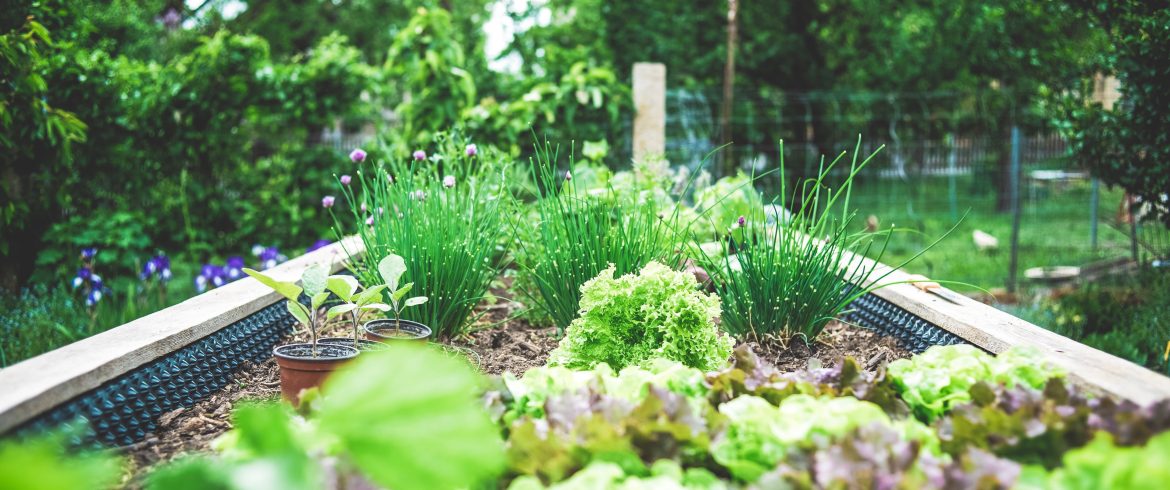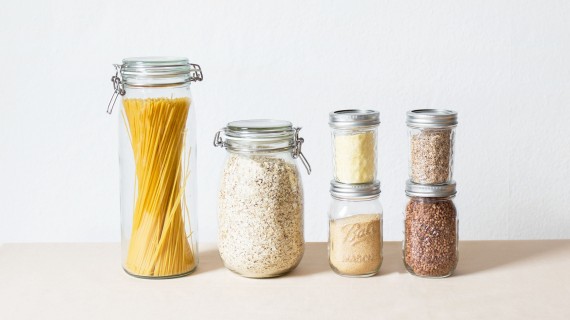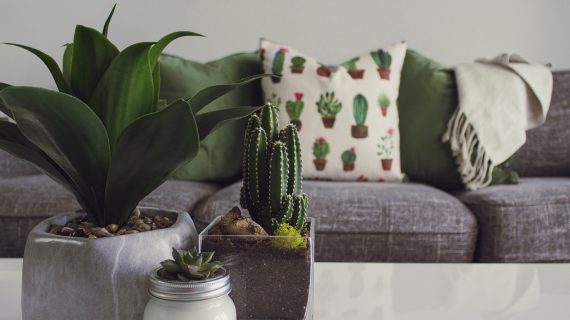Most people think their backyards are already eco-friendly enough. However, they’re probably not! Here are 5 ways to create an eco-friendly garden.
Fortunately for our planet, green living has become all the rage nowadays. As a result, more and more people are starting to realize that changes we make as individuals can positively impact our environment. From remembering to bring your reusable water bottle to attempting to create an eco-friendly garden, every little thing matters as it is a step in the right direction.
But, while the former is easy (once it turns into a habit), the latter is a bit more complex. Most people think that gardening in and of itself is already eco-friendly enough. However, in most cases, this couldn’t be further from the truth since many gardening aspects actually do more harm than good. If you are now feeling guilty for unintentionally hurting the environment – don’t! Learning and improving your habits are the essentials of sustainable living. To help you on your mission, here are a few tips on eco-friendly gardening.
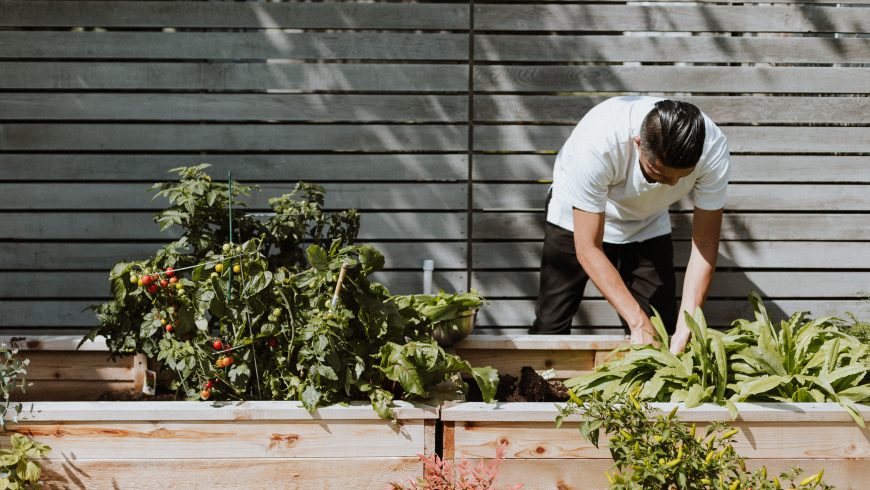
1. Choose your plants wisely
Think about the bees
If you haven’t been living under a rock, you’ve probably heard a thing or two about the importance of bees. Due to a decrease in favourable living conditions and human carelessness, our little buzzing friends are suffering. Because of this, doing everything we can to help them is imperative.
An easy way to do this is to opt for native plants for your garden. Native wildflowers are resistant to pests and diseases, easy to care for, and require very little to no maintenance. The fact that they are a beautiful blessing to our environment isn’t too shabby either.
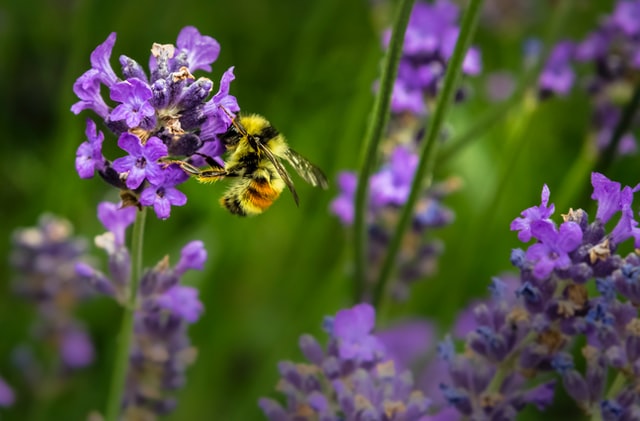
Therefore, researching native plants for your area is the first step you should take to create an eco-friendly garden. Since there is an abundance of species to choose from, you can rest assured that your garden won’t lack any colour or variety.
Plant trees
If you want to do your part to preserve our planet, you might want to plant a few trees. Here’s why trees are always a good idea:
- They produce oxygen and clean the air;
- They create shade and help keep your home and garden cool;
- They provide homes to various animals and insects;
- They provide food;
- They are beautiful!
2. Let it be
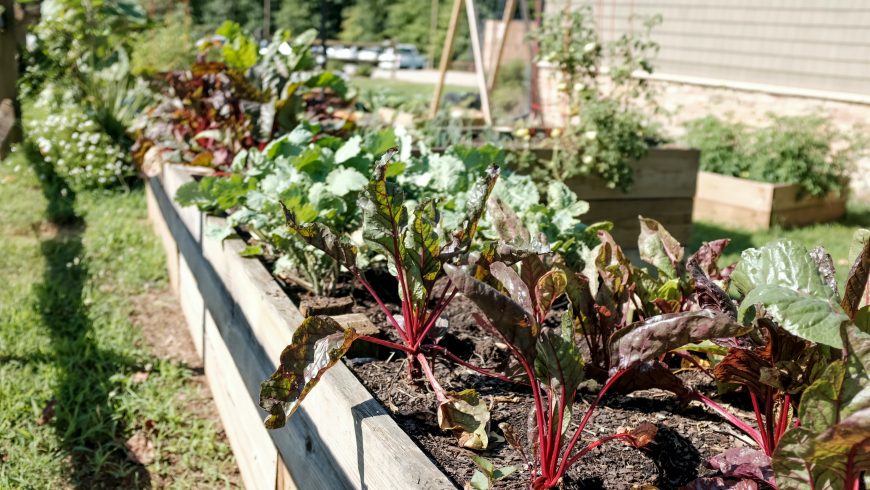
If you prefer to enjoy the fruits of your work rather than actually work, you’ll be happy to hear that the best thing you can do to make your garden eco-friendly is to leave it alone. By giving your lawnmower and gardening tools a break, you will be doing an enormous favour to the environment.
Therefore, resist the urge to make everything look neat, sit back, and enjoy nature’s magic happening in your backyard. Once your garden discovers its wild side, things will become much more exciting as various animals and insects will often visit.
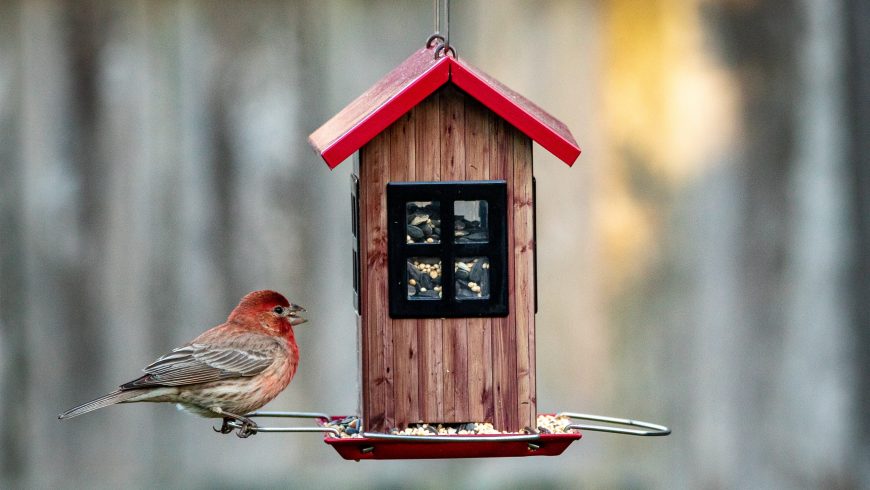
If you want to make your garden even more inviting to wildlife, consider cutting small holes in your fence and making a bird feeder, bug hotel, hedgehog house, etc. Additionally, you can build a pond or a water feature where these little creatures will be able to refresh and cool off on warm days.
3. Grow your food
In the past, vast, neatly trimmed lawns used to be considered status symbols. Nowadays, however, most wealthy people utilize every inch of land on their properties to grow their own organic food. While organic produce is available on the market, you can never be entirely sure about its origin. Luckily, when you plant your favourite fruits and veggies in your garden, you are in complete control of how you’re going to care for them.
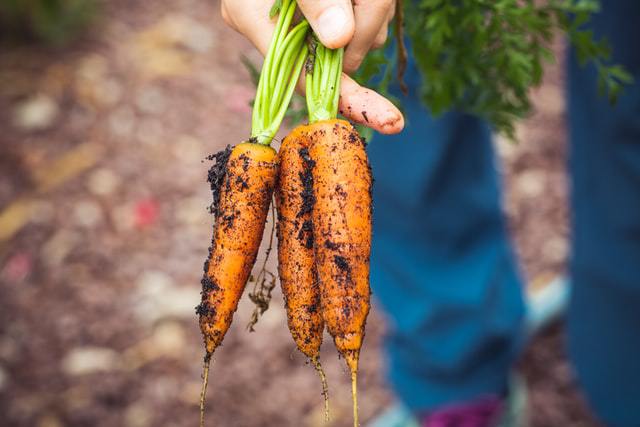
This way, not only will you have access to healthier food, but you will also save money and lower your carbon footprint!
4. Reduce waste
Gardening, much like many other activities nowadays, includes a lot of waste. What is even worse, we are so used to throwing things away that we don’t even notice the amounts of trash we produce. However, it doesn’t have to be that way. Becoming low or zero-waste in your home and garden is not as difficult as it seems. All you have to do is be more mindful about what you buy and, of course, reduce, reuse, recycle!
Compost
A zero-waste lifestyle couldn’t exist without composting. And your garden shouldn’t either! Here are a few things you can compost:
- lawn and hedge trimmings
- most raw vegetable and fruit scraps
- coffee grounds and plastic-free teabags
- newspaper and cardboard
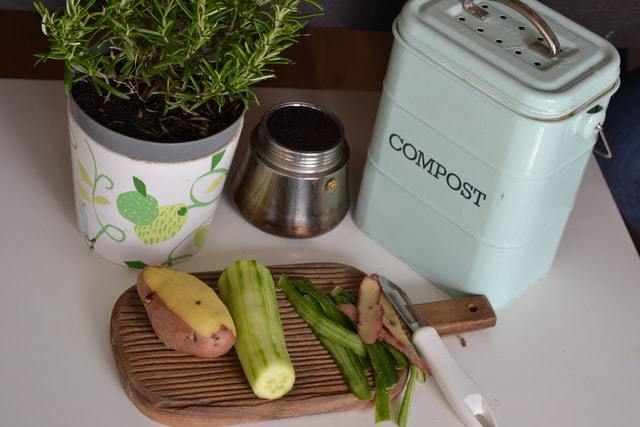
If you decide to start a compost pile, make sure to do thorough research on what you can put in it and in what amounts to avoid funky smells and ensure proper decomposition. In around six months, your compost will turn into fruitful organic matter that you can use to enrich your garden soil!
Make your own fertilizer
Another fun way to reduce waste and be kinder to your environment is to make your own fertilizer. You can do this by letting leaves and grass trimmings decompose wherever they fall or by soaking various food scraps and weeds in water for a few days.
5. Save water
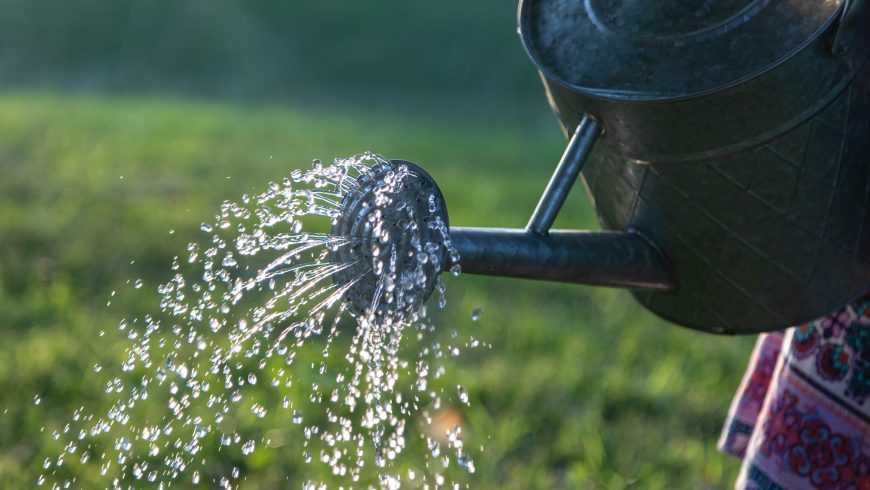
Finally, if you want to create an eco-friendly garden, you have to do everything in your power to save water. While you cannot stop watering your plants altogether, you certainly can do it more wisely. For starters, water your garden less frequently but with more water. Make sure not to waste any H2O on leaves and focus on the roots instead. Consider adding mulch and gravel to increase water retention. Additionally, try to collect rainwater and cooking water to avoid turning on the tap as much as you can.
Cover image: photo via Unsplash

Author: Kate Salazar a green living enthusiast and freelance blogger currently working with Transparent International NYC. Inspiring people to implement sustainable habits into their homes and daily routines is one of her passions. She tries her best to do so by providing valuable tips and tricks through her articles. In her free time, if she is not working toward becoming zero-waste, you’ll probably find her walking her dogs.
Cover image: via Unsplash
